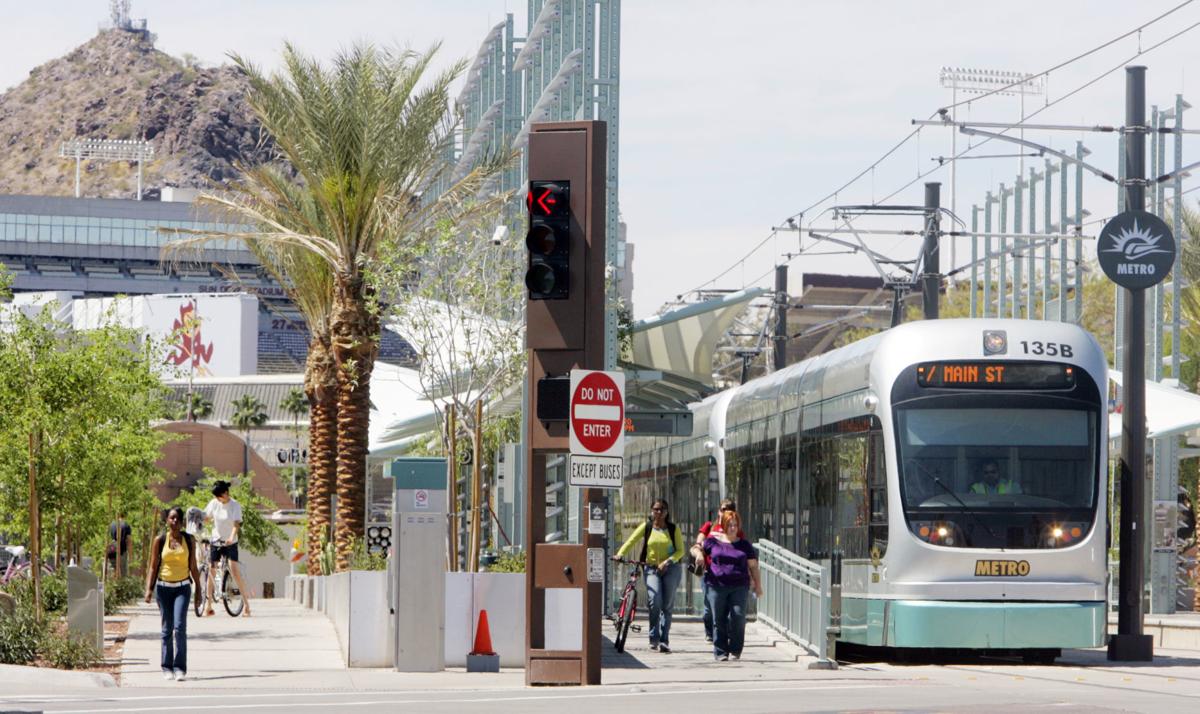PHOENIX — Arizona’s attorney general is making a last-ditch effort to quash a proposal to build a 330-room Omni hotel and a 30,000-square-foot conference center on land that is owned by Arizona State University.
Attorney General Mark Brnovich contends the deal violates the gift clause of the Arizona Constitution. He says the Arizona Board of Regents is effectively providing a subsidy to the private developer by paying for a conference center that the university would be able to use just seven days a year.
There’s also a separate legal question of having what amounts to a tax exemption for the hotel, according to Brnovich, because it is being built on tax-exempt university property.
The outcome of the litigation could have statewide implications, governing future deals between state universities and commercial enterprises.
But Brnovich first has to get into court to make those claims.
At a court hearing Friday, attorney Paul Eckstein, who is representing the regents, urged Tax Court Judge Christopher Whitten to throw out the case, saying that the state waited too long to file suit.
He presented evidence that it was public knowledge as far back as 2016 that the deal was in the works when elements of it were discussed at a legislative hearing. But the state did not file its first complaint until January 2019; an amended complaint with more claims came three months later.
Arizona law requires such lawsuits to be filed within a year of the action being challenged.
Assistant Attorney General Beau Roysden told the judge that clock starts running when the person filing suit realizes the damage and knew — or should have known — the cause of the damage.
“We did not realize we were damaged until November of 2018 when we actually had attorneys go in and do research,” he told the judge.
That makes the lawsuit timely, Roysden said.
He did not dispute that state Rep. Athena Salman, D-Tempe, wrote an op-ed piece in January 2018 decrying what she said were improper tax breaks “in a deal practically no one has heard about.” But Roysden said that “did not make it unquestionable” that the plan was illegal.
Eckstein countered, “This transaction was talked about at the Board of Regents level for a year and a half or so before the transaction was signed on Feb. 28, 2018.” That included a November 2016 regents’ meeting where he said key details were on the agenda.
“And it should not be lost on Your Honor that the attorney general represents the Arizona Board of Regents,” Eckstein continued.
The outcome of the legal battle is about more than the hotel and conference center. If Brnovich ultimately prevails, it could call into question other similar deals entered into between the state’s three universities and private developers.
There are two basic legal issues.
One is the payment of tax dollars to private companies, the gift clause issue. In this case, ASU is paying $19.5 million to build the conference center even though the contract allows the school to use it just seven days a year.
There is also the claim by Brnovich that ASU agreed to pay about $30 million to construct a 1,200-space parking garage but will “gift” Omni 275 of the spots, which the hotel will get to use exclusively while keeping the revenue they generate.
As for the property tax issue, there will be some “payments in lieu of taxes.” But Brnovich contends that will still leave schools and local governments short of what they would otherwise have received if the property were on the tax rolls the same as any other commercial development.
Whitten already rejected the contention that property taxes were being avoided as the land in question, being owned by the regents, already is exempt from taxes. An appeal is likely.
That still leaves Whitten to decide the gift clause claim. He did not say when he will rule.
The hearing comes less than a month after an often-stinging review of the practices of the Board of Regents in leasing out property for commercial use, in which the Auditor General’s Office concluded there was a lack of proper oversight and limited transparency, creating a “risk of inappropriate use of public resources.”





